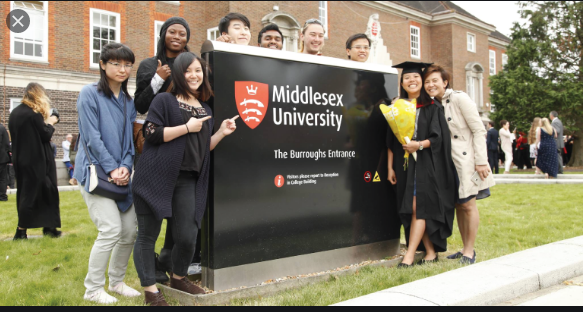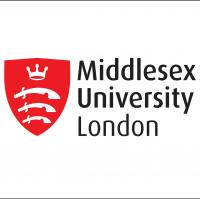LLM International Minority Rights Law
Overview
The course explores questions and perspectives on human rights, gender, and social exclusion - examining how rights are understood and put into practice around the world, and identifying the barriers that prevent rights from becoming a reality.
Why study LLM/PGDip/PGCert International Minority Rights Law at Middlesex University?
This degree aims to enable students to specialise in subjects related to international minority rights law, equipping them with comprehensive knowledge of the international and regional legal regimes governing minority and indigenous rights, through critical assessment of the efficacy of human rights and sustainable development frameworks.
You will deepen and broaden your knowledge of law as an academic subject through acquiring systematic understanding of legal processes, methods and concepts of the social and political context in which legal processes take place and of appropriate theoretical conceptions of law.
By maximising your academic potential potential and refining your problem-solving skills in a transnational context through the acquisition of systematic and critical understanding of complex legal, economic, cultural, ethnic, religious, ethical and political issues informing international minority rights law you will enhance your professional development and horizons.
The research and writing skills you gain will be transferable to a variety of professional sectors, including the legal profession, policymaking, corporate sector, governmental bodies or academia.
With a strong sense of social justice at its core, Middlesex University School of Law is home to some of the world's foremost figures in the fields of minority rights and development law, whose work has helped safeguard the rights of groups in vulnerable positions across the world.
They include Senior Lecturer Dr David Keane, whose book on caste-based discrimination won the Hart Book Prize; Dean of the School Professor Joshua Castellino, whose expertise was called upon as chair of a 2015 session of the United Nations Forum on Minority Issues; and Professor Sarah Bradshaw, expert on development studies and gender, with ample experience working on the ground in several projects around the globe.
Course highlights
- A unique degree offering a complete overview of international law and practice in minority rights and indigenous peoples
- Learn about the current mechanisms in minority rights and indigenous peoples rights, and the gap between UN international rights norms and their implementation on the ground
- The opportunity to engage with other students and experts across the globe by participating on the Human Rights, Human Wrongs: Challenging Poverty, Vulnerability and Social ExclusionMOOC (Massive Open Online Course) led by Professor Sarah Bradshaw and Professor Joshua Castellino working in conjunction with Columbia University. Students enrolled in the minority rights specialism will be awarded a digital certificate of completion in addition to their postgraduate award.
- The programme engages closely with UN mechanisms and human rights bodies, due to previous and current involvement in UN procedures by our tutors
- There may also be internship opportunities in national and international organisations such as the United Nations or in the European Human Rights Advocacy Centre on campus.
Intakes
- Sep
Application Processing Time in Days: 30
Application Process
Minimum English Language Requirements
| English Level Description | IELTS (1.0 -9.0) | TOEFL IBT (0-120) | TOEFL CBT (0-300) | PTE (10-90) | |
|---|---|---|---|---|---|
| Expert | 9 | 120 | 297-300 | 86-90 | |
| Very Good | 8.5 | 115-119 | 280-293 | 83-86 | |
| Very Good | 8 | 110-114 | 270-280 | 79-83 | |
| Good | 7.5 | 102-109 | 253-267 | 73-79 | |
| Good | 7 | 94-101 | 240-253 | 65-73 | |
| Competent | 6.5 | 79-93 | 213-233 | 58-65 | |
| Competent | 6 | 60-78 | 170-210 | 50-58 | |
| Modest | 5.5 | 46-59 | 133-210 | 43-50 | |
| Modest | 5 | 35-45 | 107-133 | 36-43 | |
| Limited | 4 | 32-34 | 97-103 | 30-36 | |
| Extremely Limited | < 4 | < 31 | < 93 | < 30 |
Admission Requirement / Eligibility Criteria
Qualifications
We accept the equivalent of the below qualifications from a recognised overseas qualification:
- The University's standard entry requirement consists of a Law degree at 2:2 or Graduate Diploma in Law/CPE.
- Graduates in related disciplines, with law minors or with relevant professional experience or qualifications may be admitted subject to the programme leader's discretion.
To find out more about the qualifications we accept from your country please visit the relevant Support in your country page. If you are unsure about the suitability of your qualifications or would like help with your application, please contact your nearest Regional office for support.
Visas and immigration
You will not need a visa to study in the UK if you are a citizen of the European Union, Iceland, Liechtenstein, Norway or Switzerland. If you are a national of any other country you may need a visa to study in the UK. Please see our Visas and immigration page for further information.
International students who require a Tier 4 Student Visa to progress on a course at Middlesex University must apply for study on a full-time basis. However, this course is offered part-time so you are eligible to apply on a part-time basis.
- Course Type: Full Time
- Course Level: Masters/PG Degree
- Duration: 01 Year
-
Total Tuition Fee:
14000 GBP
Annual Cost of Living: 12006 GBP
Application Fee: N/A
Similar Programs
- LLM Human Rights Law with Integrated Placement at Middlesex University London
- LLM Employment Law at Middlesex University London
- LLM International Business Law at Middlesex University London
- LLM/PGDip/PGCert Law (General) at Middlesex University London
- Occupational Health and Safety and Environmental Management MSc/PGDip at Middlesex University London
- Occupational Health, Safety and Wellbeing Management MSc/PGDip at Middlesex University London

